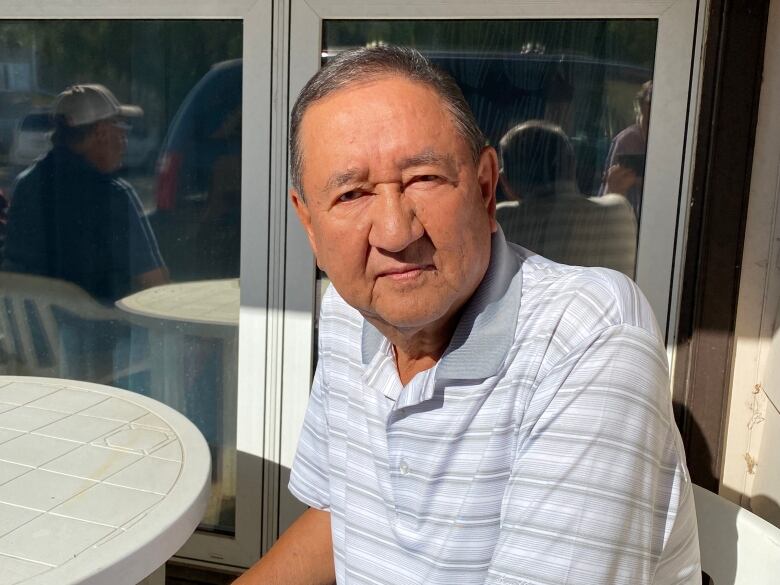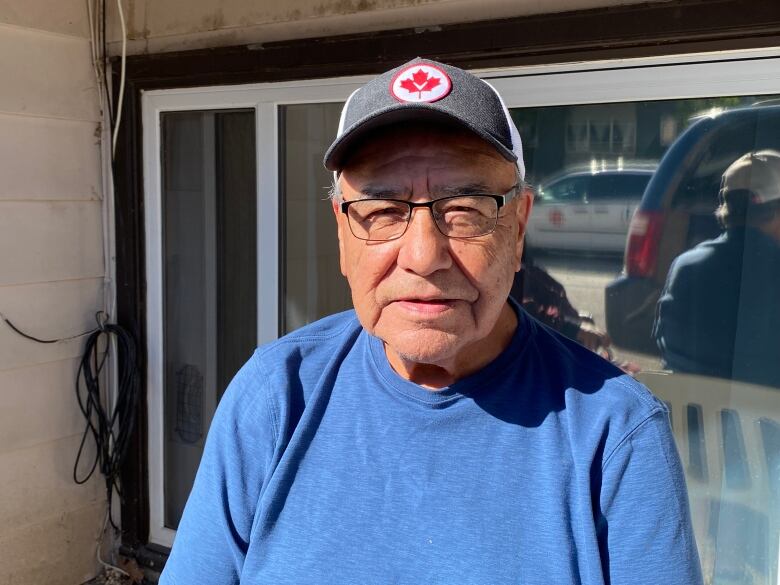Residential school survivors frustrated Wilson-Raybould not consulted on scrapping of 2015 compensation appeal
Federal official says decisions made in 'caretaker' period before Wilson-Raybould was justice minister

Residential school survivors say they're saddened to hear Canada's first Indigenous justice minister, Jody Wilson-Raybould, wasn't consulted by government officials on the decision to abandon an appeal in a key legalcase affecting them.
In the days after Wilson-Raybould was sworn in back in November 2015, the governmentdropped itscourt appeal of the Roman Catholic Church's compensation buyoutagreement. Thatended the government's legal attemptsto make the church pay themillions in compensation remaining on its $79 million worth of promises to survivors.
"That's why [Wilson-Raybould] was there. That's why that position is there. Definitely, she should have had a choice to be in on that decision," said Rick Daniels, a member of Mistawasis Nhiyawak and a survivor of St. Michael's Indian Residential School in Duck Lake, Sask.
An official withCrown-Indigenous Relations and Northern AffairsCanada provided some details Friday, sayingkey decisions on the case were made in the days and weeks prior to Wilson-Raybould's appointment.
Harper government launched the appeal
It wasStephen Harper's Conservativegovernment in 2015 that appealed the Saskatchewan Court of Queen's Bench ruling approving the buyout.
Among the reasons cited for theappeal were Justice Neil Gabrielson's "palpable and overriding errors in his assessment of the facts." The government asked that thedecision be"quashed."

That fall, Justin Trudeau's Liberals defeated Harper's Conservatives to form a majority government. On Nov. 4, 2015, Trudeau's first cabinet was sworn in. Wilson-Raybould, a member of the We Wai Kai Nationand former elected regional chief of the British Columbia Assembly of First Nations, was appointed minister of justice.
Six days later, on Nov.10, another document was filed in the Saskatchewan Court of Appeal by a senior Department of Justice lawyer. A "Notice of Abandonment" informedthe court that the federal governmentwas choosing to withdraw the appeal. The case was closed immediately. No reasons were given.
A source with direct knowledge of the case told CBC News this week that Wilson-Raybould wasn't consulted even though the final court papers were submitted during her tenure. Wilson-Raybouldherselfdeclined theCBC'sinterview request.
In an email Friday morning, Crown-Indigenous Relations and Northern Affairs Canada spokespersonMegan McLeansaid the decision to abandon the appeal was made by the deputy minister of the department, then known as Aboriginal Affairs and Northern Development Canada.
A "full and final" release document agreeing to the Catholic Church's $1.2-million buyout was signed between the government and the Catholic Church on Oct. 30, McLean said.
She said the final negotiations and buyout agreement were completed during the "caretaker" period between governments.

CBC News also asked McLean why the government's official position changed between launching the appeal in August and dropping it in November, and why key parts of thenegotiations took place during the caretaker period and why Wilson-Raybould was not consulted before the documentto scrap the appealwas filed in court by her officials. It's also unclear whether government officials felt Wilson-Raybould could intervene at that point in the process.
She said it may take more time to respond given the "highly legal and government-wide policy angles" of the questions.
'First Nations should have played the lead role'
George Cameron, also a St. Michael's survivor and Beardy's &Okemasis' Cree Nation member, said it was wrong to leave Wilson-Raybould out of the process, but it was also wrong to leave out First Nations leadership and survivors.
"I think First Nations should have played the lead role in deciding to proceed or not to proceed against the church, knowing full well the billions of dollars the church has at its disposal," Cameron said.
"It doesn't say much about our government and the consultation process they should've had. It kind of pisses you off."
Mary Ellen Turpel-Lafond, aformer Saskatchewan provincial court judge and member of the Muskeg Lake Cree Nation, agreed.
"They didn't put survivors first;they putthem last," she said.
Turpel-Lafond, now the director of the University of British Columbia's Indian Residential School History and Dialogue Centre, said it was wrong to make such a monumental decision during the caretaker period, and there was still time for Wilson-Raybouldto have final say on the appeal.
"I'm not surprised the colonial officials kept this from [Wilson-Raybould], because those officials and leads in what is now CIRNAC knew well that if a prominent inter-generational survivor and Indigenous lawyer in authority saw it, they would immediately demand a course correction."
Turpel-Lafond is calling for an independent review of the roles of both the governmentand the Catholic Church in the settlement agreement.
New fundraising campaign
The 2015 case stemmed from thelandmark 2005 Indian Residential Schools Settlement Agreement. The government and various Christian churches faced potentially billions of dollars inliability and lawsuits from the 150,000 survivors and their families for the decades of emotional, physical and sexual abuse, malnutrition, cultural shaming and systemic violations of basic human rights suffered in theschools. The schools were run by the churches on behalf of the federal government. The Catholic Church oversaw roughly 70 per cent of them, including St. Michael's.
The Catholic Church was the final party to join the settlement, agreeing to a side deal reached withthe federal government that promised$29 million in cash, $25 million worth of "in-kind compensation" and to give "best efforts" at fundraising another $25 million.
After several years, the other denominations Anglican, Presbyterian andUnited had paid their full compensation amounts, but the Catholic Church had not.
The matter went to court. Documents from the 2015 case recently obtained by CBC News showed the Catholic Church fundraised less than $4 million, was millions short on the $29 million cash payment after spending millions on lawyers and other expenses, and had claimed millions for bible study,staffing and other religious work as "in-kind" compensation.
Because the Catholic deal was made with the federal government only, survivors and First Nations were not part of the 2015 case or the decision to abandon the appeal.
Following publication of these details, as well as the discoveries of hundreds of potential unmarked graves on or near the sites of former residential schools across the country, there were calls to boycott mass and a petition to revoke the Catholic Church's various tax exemptions.
Last month, Roman Catholic bishops across Canada issued a writtenapology and promised a new five-year fundraising campaign with a goal of $30 million.
Daniels, Cameron and others sayit's a positive step. But they say it's shamefulit took so long to come aboutand frustratingit will take another five years to complete. They wonderif this will be one more broken promise.
"The power that the Catholic Church has, I believe, has a lot to do with what the governmenthas done, regardless of how survivors have suffered and gone through trauma," Daniels said.
"I'm not too happy or keen on this."













_(720p).jpg)


 OFFICIAL HD MUSIC VIDEO.jpg)
.jpg)



























































































